Come join us now, and enjoy playing your beloved music and browse through great scores of every level and styles!
Can’t find the songbook you’re looking for? Please, email us at: sheetmusiclibrarypdf@gmail.com We’d like to help you!
Table of Contents
Remembering Johnny Cash on the day, in 2003, he sadly died.
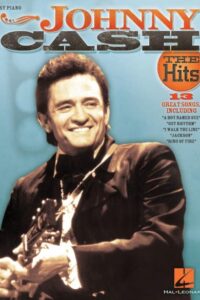
Browse in the Library:
Or browse in the categories menus & download the Library Catalog PDF:
The Man in Black: An Exhaustive Retrospective on Johnny Cash
On September 12, 2003, the world lost one of its most resonant and unmistakable voices. Johnny Cash, the iconic “Man in Black,” passed away at the age of 71 due to complications from diabetes, just a few months after the death of his beloved wife, June Carter Cash. His passing marked the end of an era, but his legacy—a vast, deep river of song, story, and soul—continues to flow, undimmed by time. To discuss Johnny Cash is to explore not just a musician, but a cultural force; a flawed, searching, and profoundly human artist whose work transcended genre and generation.
Biography: A Life Forged in Struggle and Song
John R. Cash was born on February 26, 1932, in Kingsland, Arkansas, to Ray and Carrie Cash. His family was poor, raised on a cotton farm in Dyess, Arkansas, a New Deal colony where the Cash family worked the land alongside other struggling families. This upbringing, defined by economic hardship, faith, and tragedy (the accidental death of his older brother Jack in 1944 left a permanent scar), became the bedrock of his artistic identity.
After graduating high school, Cash left Arkansas and enlisted in the United States Air Force. While stationed in Landsberg, West Germany, as a Morse code interceptor, he purchased his first guitar and began writing songs, forming his first band. It was there he met his first wife, Vivian Liberto, through letters. After his discharge in 1954, he moved to Memphis, Tennessee, with Vivian and their young daughters.
Working as an appliance salesman, Cash sought an audition with Sun Records, the legendary label run by Sam Phillips, who had already discovered Elvis Presley, Carl Perkins, and Jerry Lee Lewis. Initially rejected for performing gospel songs, Phillips encouraged him to come back with something more commercial. Cash returned with the raw, driving “Hey Porter” and “Cry! Cry! Cry!,” and a legend was signed.
The 1950s and early 60s were a period of meteoric success. Hits like “Folsom Prison Blues,” “I Walk the Line,” and “Ring of Fire” (co-written by June Carter and Merle Kilgore) made him a country and crossover star. However, this period was also marked by the beginning of a long and painful struggle with amphetamine and barbiturate addiction, the strain of which led to the dissolution of his first marriage and a series of erratic, self-destructive behaviors.
His salvation came in two forms: his music and June Carter of the famed Carter Family. June, who began touring with Cash in the early 60s, became his anchor. Their tumultuous, on-again, off-again relationship, culminating in a marriage proposal live on stage in London, Ontario, in 1968, is the stuff of music legend. They married that same year and remained together for 35 years until their deaths in 2003.
The 1970s saw continued success with the hit television show The Johnny Cash Show, but also battles with his demons and a commercial decline in the 1980s. His career was resurrected in an unprecedented way in the 1990s through his association with producer Rick Rubin and the American Recordings label. Stripping his sound down to its essential core, these albums introduced Cash to a new, alternative rock audience and cemented his status as an American icon. He continued to record and perform despite serious health problems, including a diagnosis of the neurodegenerative disease Shy-Drager syndrome (later re-diagnosed as autonomic neuropathy). He died four months after June, his heart, many said, simply broken.

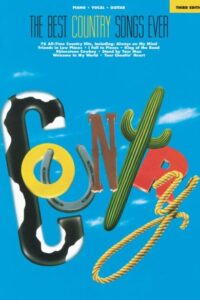

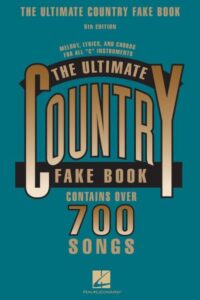
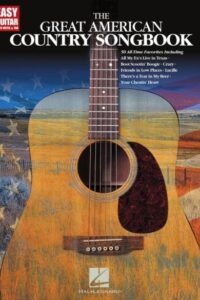
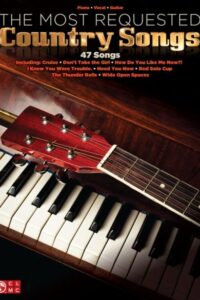
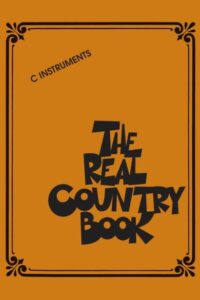

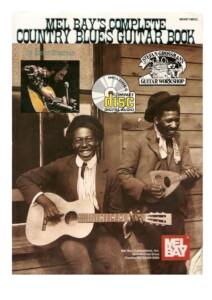


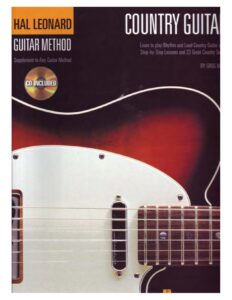
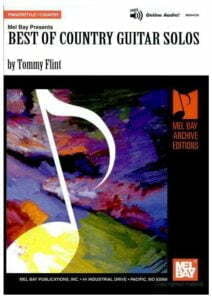

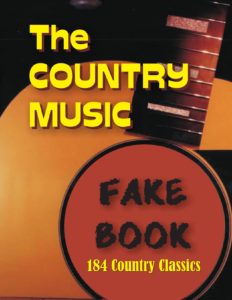
Music Style: The Sound of Sincerity
Johnny Cash’s music is often categorized as country, but that label is too narrow. His style is a unique amalgamation of:
- Country and Rockabilly: His Sun Records output is foundational rockabilly—raw, rhythmic, and minimalist, driven by an acoustic guitar with a piece of paper tucked under the strings to create his signature “chucka-chucka” sound.
- Gospel: His deep, abiding Christian faith was a constant theme, from his first audition for Sam Phillips to his final recordings.
- Folk and Storytelling: Cash was, above all, a storyteller. His songs are narrative-driven, often focusing on the struggles of the poor, the condemned, the lonely, and the lost, in the tradition of American folk music.
- The “Boom-Chicka-Boom” Sound: The core of the classic Johnny Cash sound is the “boom-chicka-boom” rhythm, a steady, train-like cadence provided by his backing bands, first the Tennessee Two (guitarist Luther Perkins and bassist Marshall Grant) and later the Tennessee Three (with drummer W.S. Holland). It was simple, direct, and unforgettable.
His voice was his most powerful instrument: a rich, deep, resonant baritone that conveyed unwavering authority, deep empathy, and world-weary experience. He wasn’t a technical singer in the traditional sense, but he was a profoundly expressive one. Every word he sang carried the weight of truth.
Improvisational Licks and Musical Approach
Cash’s genius did not lie in virtuosic, flamboyant guitar solos. His approach was one of rhythmic propulsion and minimalist melody. Guitarist Luther Perkins developed a signature style that was as elemental as Cash’s voice.
- The Luther Perkins Lick: Perkins’ playing was defined by simple, melodic figures played on the bass strings, often using the root and fifth of the chord, while his right hand maintained the steady “chicka” rhythm on the higher strings. This created a full, driving sound with just two instruments. A prime example is the iconic opening riff of “Folsom Prison Blues.” It’s not a fast or complex solo, but its immediacy and rhythmic punch are perfect for the song. Perkins would often play the same melodic lick throughout a song, creating a hypnotic, trance-like groove. This wasn’t a lack of creativity; it was a deliberate stylistic choice that defined the Cash sound.
Cash himself was a rhythm guitarist. His strumming was powerful and percussive, serving as the engine of the music. His improvisation came not through guitar pyrotechnics, but through his vocal phrasing—the way he would play with timing, pause for dramatic effect, or drop his voice to a near-whisper to draw the listener in.
Cooperation with Other Artists
Cash was a generous collaborator who revered musical tradition and loved singing with his peers. His collaborations are legendary:
- The Highwaymen: The ultimate country supergroup, consisting of Cash, Waylon Jennings, Willie Nelson, and Kris Kristofferson. They recorded three albums, touring and embodying the Outlaw country movement of the 1970s and 80s.
- The Carter Family: His marriage to June Carter was also a deep musical partnership. He frequently performed and recorded with Mother Maybelle Carter and the Carter Sisters (Anita, Helen, and June), embedding himself in the first family of country music.
- Bob Dylan: Cash and Dylan were mutual admirers. They famously collaborated on Dylan’s Nashville Skyline album, and Cash was a vocal supporter of Dylan when the folk scene criticized his move to electric music.
- Rick Rubin: Perhaps the most important collaboration of his later career. Rubin, co-founder of Def Jam Records, approached Cash not as a country relic but as a timeless American artist. He produced a series of stark, intimate albums (American Recordings) that revitalized Cash’s career.
- Countless Duets: From “The Girl from the North Country” with Dylan and “Jackson” with June Carter to unexpected pairings with artists like Nick Cave, Tom Petty, and Joe Strummer, Cash’s collaborative spirit knew few bounds.
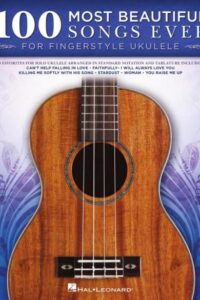
Chord Progressions and Music Harmony
The harmonic structure of Johnny Cash’s music is famously, and powerfully, simple. He operated primarily within the foundational building blocks of country, folk, and blues music.
- I-IV-V Progressions: The vast majority of his classics are built on the twelve-bar blues or simple I-IV-V (1-4-5) progressions in a major key. “Folsom Prison Blues” is a blistering twelve-bar blues. “I Walk the Line” uses a unique “steady, walking” bassline that oscillates between the I and V chords, creating a sense of tension and resolve that mirrors the song’s theme of steadfastness.
- Relative Minor Chords: To add a touch of melancholy or gravity, Cash would often incorporate the vi (6m) chord, the relative minor of the I chord. This is evident in songs like “Ring of Fire,” which uses the progression I-IV-I-V-IV-I-VI-IV-V-I. The introduction of that major VI chord (though the key is in a major, the chord itself is major) is a key part of the song’s mariachi-inspired, desperate energy.
- Simplicity as a Strength: Cash never relied on complex jazz chords or modulations. His power came from his unwavering commitment to these simple progressions. The focus was always directed toward the story, the voice, and the rhythm. This simplicity is what made his songs so accessible, so easy to play, and so emotionally direct.
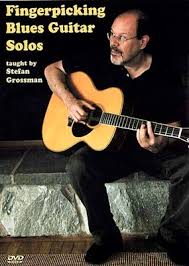
Influences
Cash’s music was a product of the American South, and his influences reflect that:
- Gospel Music: The church hymns of his childhood were his first and most enduring musical influence.
- The Carter Family and Jimmie Rodgers: The “First Family of Country Music” and the “Father of Country Music” were pillars of the genre he would help shape.
- Hank Williams: Williams’ direct songwriting and haunted persona were a clear blueprint for the young Cash.
- Traditional Folk and Work Songs: The songs of prisoners, farmers, and railroad workers provided both subject matter and musical form.
- Poetry and Literature: Cash was a voracious reader, and his songwriting was influenced by poets like Shelley and Thomas, and novelists like Tolstoy and Dostoevsky, which informed his themes of sin, redemption, and social justice.
Legacy
Johnny Cash’s legacy is immeasurable. He is one of the few artists inducted into the Country Music, Rock and Roll, and Gospel Music Halls of Fame.
- Cultural Icon: The “Man in Black” persona became a symbol of solidarity with the oppressed and the outcast. He was a voice for those without one.
- Artistic Integrity: His late-career renaissance with Rick Rubin is a masterclass in artistic relevance, proving that powerful songwriting and authenticity are timeless.
- Influence on Generations: His influence stretches far beyond country music, impacting rock, folk, punk, and alternative artists from Bob Dylan and Bruce Springsteen to Trent Reznor (of Nine Inch Nails, whose “Hurt” Cash famously covered) and Joaquin Phoenix (who portrayed him in the film Walk the Line).
- The American Voice: More than anything, Johnny Cash came to represent a certain archetype of American character: rugged, independent, morally complex, haunted by sin, striving for grace, and forever telling the story.
Works and Filmography
Beyond music, Cash was a presence in film and television.
- Film: He appeared in several movies, including A Gunfight (1971), The Pride of Jesse Hallam (1981), and Murder in Coweta County (1983). The 2005 biopic Walk the Line, directed by James Mangold and starring Joaquin Phoenix and Reese Witherspoon, brought his story to a new generation.
- Television: The Johnny Cash Show (1969-1971) was a hugely popular variety show that featured musical guests from across the spectrum, from Neil Young and Louis Armstrong to James Brown.
Discography (Selective)
His discography encompasses over 90 albums. Key highlights include:
- With His Hot and Blue Guitar! (1957)
- Johnny Cash at Folsom Prison (1968) – A landmark live album.
- Johnny Cash at San Quentin (1969) – Another iconic live recording.
- Man in Black (1971)
- American Recordings (1994)
- Unchained (1996)
- American III: Solitary Man (2000)
- American IV: The Man Comes Around (2002)
- American V: A Hundred Highways (2006, posthumous)
Most Known Compositions and Performances
- “I Walk the Line” (1956): His first #1 country hit and signature song of devotion.
- “Folsom Prison Blues” (1955): The song that defined his outlaw persona.
- “Ring of Fire” (1963): A passionate, horn-driven declaration of tumultuous love.
- “Man in Black” (1971): His personal anthem and statement of purpose.
- “A Boy Named Sue” (1969): A Shel Silverstein-penned, humorous story-song that was a huge hit from the San Quentin album.
- “Hurt” (2002): His cover of the Nine Inch Nails song, accompanied by a devastating music video, is considered one of the most powerful swan songs in music history.
- “The Man Comes Around” (2002): An apocalyptic, biblically-inspired original from his final years.
Johnny Cash was more than a musician; he was a storyteller, a preacher, an outlaw, and a saint. He sang for the prisoner, the poor, the lover, and the loser. He gave voice to a raw, unvarnished, and profoundly human American experience. Though he died on this day two decades ago, the deep, resonant boom-chicka-boom of his music continues to echo, as vital and necessary as ever.
Best Sheet Music download from our Library.

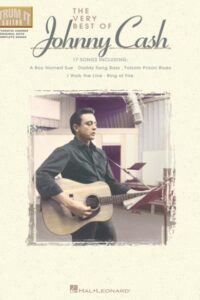
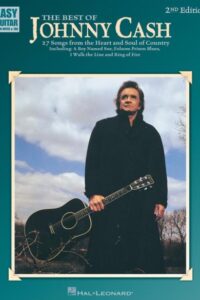
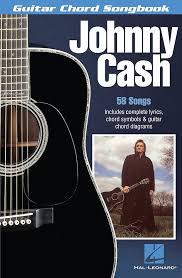
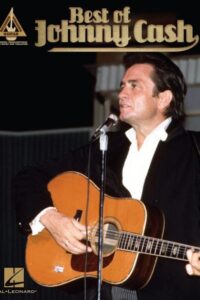
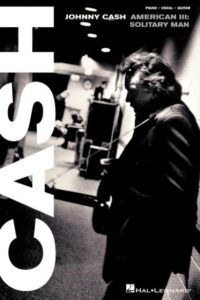





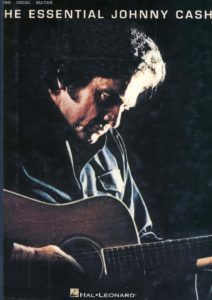
Please, subscribe to our Sheet Music Library.
If you are already a subscriber, please, check our NEW SCORES’ page every month for new sheet music. THANK YOU!
Johnny Cash – Hurt
Official Music Video for Hurt performed by Johnny Cash
Johnny Cash – Man in Black (The Best Of The Johnny Cash TV Show)
“Man in Black (The Best Of The Johnny Cash TV Show)” by Johnny Cash.
Johnny Cash was a legendary country music singer, songwriter and musician. Born on February 26, 1932 in Kingsland, Arkansas, Johnny made his way up to be one of the most influential artists of all time. His genre-spanning music embraced country, rock and roll, rockabilly, blues, folk, and gospel sounds with top hits such as “Ring of Fire,” “Walk the Line,” and “Folsom Prison Blues.”
Honored with multiple Grammy Awards throughout his lifetime, Johnny was also inducted into both the Rock & Roll Hall of Fame and the Country Music Hall of Fame. He often collaborated with other popular music icons, such as Bob Dylan, Kris Kristofferson and Willie Nelson, to name a few. Throughout his storied career, Johnny received numerous accolades and left an indelible impact on the genre of country music. He is revered and remembered to this day as an incomparable legend of the music industry.
Johnny Cash – Folsom Prison Blues (Official Audio)
Listen to Johnny Cash on SPOTIFY
Browse in the Library:
Or browse in the categories menus & download the Library Catalog PDF:
